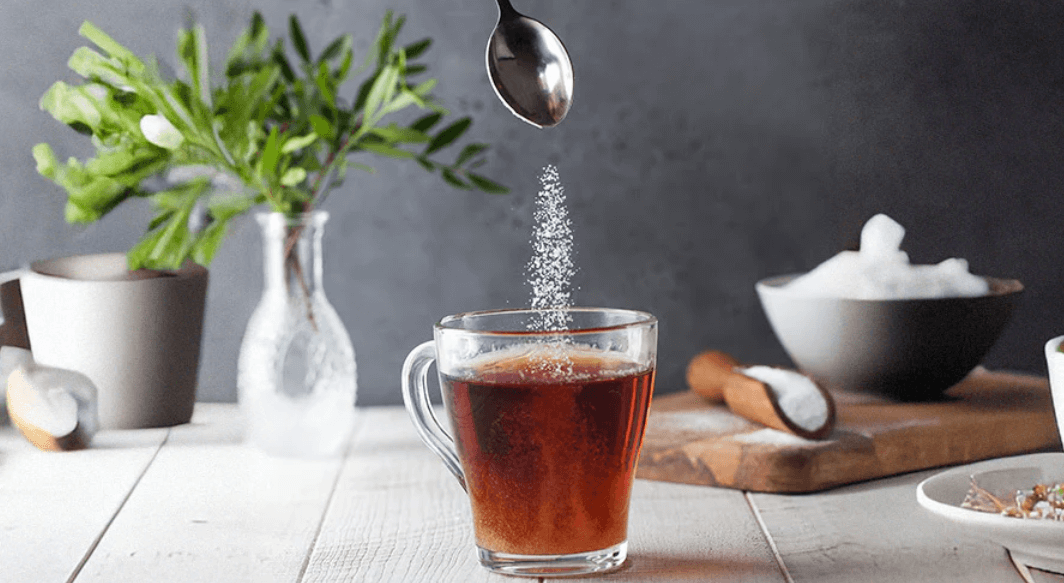Stevia vs. Allulose: Which Sweetener Wins? The Organic Allulose Sweetener Deep Dive

You’re done with sugar crashes and fake aftertastes—but with so many “natural” sweeteners out there, choosing one feels like a gamble. Stevia and organic allulose sweetener lead the pack, but which deserves a permanent spot in your pantry? Let’s dissect their pros, cons, and hidden quirks to crown a winner (spoiler: it’s not what you think).
Round 1: What Are They?
Stevia
- Source: Extracted from Stevia rebaudiana leaves.
- Sweetness: 200–350x sweeter than sugar (a little goes a looong way).
- Calories: Zero.
Organic Allulose
- Source: Found naturally in figs, raisins, and maple syrup (but commercially made via enzymatic fermentation).
- Sweetness: 70% as sweet as sugar (1:1 substitute).
- Calories: 0.4 kcal/g (10% of sugar’s calories, but labeled as “zero-calorie” in the U.S.).
See also: The Ultimate Guide to Choosing the Best Video Editor for Beginners
Round 2: Taste & Texture
| Factor | Stevia | Organic Allulose |
| Aftertaste | Bitter/licorice notes (varies by brand) | Clean, sugar-like, no bitterness |
| Mouthfeel | Can’t replicate sugar’s bulk | Mimics sugar’s texture in baking |
| Dissolves | Yes (but may leave residue) | Seamless in hot/cold drinks |
Winner: Allulose for baking, stevia for zero-calorie drinks.
Round 3: Health Impact
Blood Sugar & Insulin
- Stevia: No effect on glucose/insulin (safe for diabetics).
- Allulose: Lowers blood sugar! A 2021 Nutrition & Diabetes study found 15g allulose reduced post-meal glucose spikes by 10%.
Gut Health
- Stevia: May disrupt gut bacteria in high doses (animal studies).
- Allulose: Feeds beneficial microbes (prebiotic effect) but can cause bloating if overeaten (>30g).
Dental Health
- Both prevent cavities (no carbs for oral bacteria).
Round 4: Baking & Cooking
| Factor | Stevia | Organic Allulose |
| Caramelization | No (burns easily) | Yes (browns like sugar) |
| Volume | Requires bulking agents (erythritol) | 1:1 swap for sugar |
| Aftertaste | Bitter in baked goods | Neutral, even in cookies/cakes |
Winner: Allulose for flawless cakes; stevia for raw desserts.
Round 5: Safety & Side Effects
- Stevia: GRAS status but controversial for hormone-sensitive folks (may interact with estrogen receptors).
- Allulose: Recognized as safe, but >50g/day may cause gas or diarrhea.
Why “Organic” Matters for Allulose
Non-organic allulose is often derived from GMO corn or wheat. Certified organic allulose sweetener ensures:
✅ Non-GMO sources (tapioca or organic corn)
✅ No synthetic enzymes or solvents
✅ Heavy metal/pesticide testing
Who Should Choose Which?
- Keto Warriors: Allulose (won’t spike ketones).
- Calorie-Counters: Stevia (true zero-calorie).
- Bakers: Allulose (behaves like sugar).
- Hot Tea/Coffee Drinkers: Stevia (intense sweetness).
Pro Tips for Using Allulose
- Combine with Stevia: ½ tsp stevia + ¾ cup allulose = perfect cookie sweetness.
- Prevent Crystallization: Add 1 tsp xanthan gum per cup in ice cream.
- Budget Hack: Bulk-buy organic allulose (it’s pricier than stevia).
Organic allulose sweetener is the MVP for baking and blood sugar control, while stevia shines in zero-calorie drinks. But here’s the kicker: they’re better together. Use stevia for sweetness intensity and allulose for texture/metabolic perks.
Ready to Sweeten Smarter?
Ditch the one-size-fits-all approach and stock certified organic allulose and high-quality stevia. Your taste buds—and gut—will thank you.
Life’s too short for bad desserts.
Organic allulose: Where science meets sweetness, and every bite feels like a cheat day (without the guilt).





